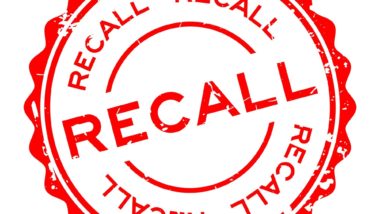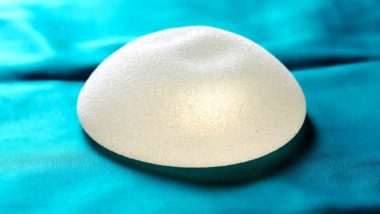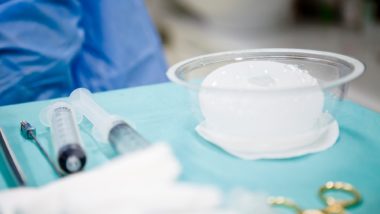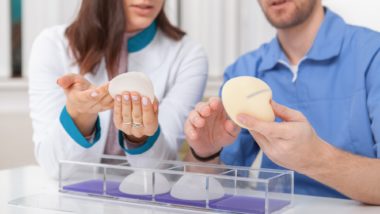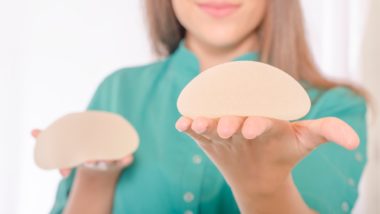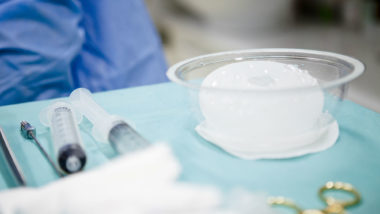Top Class Actions’s website and social media posts use affiliate links. If you make a purchase using such links, we may receive a commission, but it will not result in any additional charges to you. Please review our Affiliate Link Disclosure for more information.
Women who have become ill after breast augmentation surgery are concerned about how breast implants affect immune system function. Here are some frequently asked questions:
How Do Breast Implants Affect Immune System Function?
According to medical experts, women who receive textured breast implants run the risk of developing a breast implant cancer known as Breast Implant-Associated Anaplastic Large Cell Lymphoma (BIA-ALCL). According to the National Institutes of Health, this is a form of non-Hodgkin’s lymphoma, cancer that affects the immune system.
Is BIA-ALCL the Same as Breast Cancer?
While it can be misdiagnosed as breast cancer, BIA-ALCL does not affect the breast tissue itself. The disease can present similar symptoms, such as lumps, swelling and breast asymmetry; nonetheless, BIA-ALCL is a different type of cancer — lymphoma — that is the direct result of how textured breast implants are designed to work.
Why and How Does It Happen?
The surface of textured breast implants is designed to cause irritation of the inner breast tissues, which in turn, results in the formation of scar tissue. The idea with this design was to get the textured surface of the breast to adhere to the scar tissue; the designers believed this would prevent the implants from shifting or falling out of place. It was also supposed to reduce the risk of developing a “tight scar capsule,” which can cause the breasts to harden.
What Is a ‘Scar Capsule’ and How Does it Develop?
A scar capsule is the scar tissue that develops around the breast implant. It is one way that breast implants affect immune system function; normal scar tissue helps the body’s defenses fight off potential pathogens, or “foreign invaders.” (It should be noted that a breast implant is not a “pathogen” in the biological sense; however, antibodies perceive them as such, which is what causes the reaction.) Normally, this is not a problem; however, when it tightens and hardens around the implant, the result can be a painful condition known as capsular contracture, according to the American Society of Plastic Surgeons.
How Is ALCL Diagnosed?
The outward signs of BIA-ALCL as breast implants affect immune system function are similar to those of breast cancer; however, an accurate diagnosis requires that a sample of fluid surrounding the implant (known as a seroma) be taken and undergo laboratory tests.
How Common is BIA ALCL?
Since BIA-ALCL was first discovered, regulators like the U.S. Food and Drug Administration (FDA) have kept track of cases globally as well as in the United States.
Around the world, there have been 733 unique cases of BIA-ALCL and 36 deaths from the disease. These numbers, released in an August update from the FDA, mark an increase of 160 new cases and three deaths since an update in July 2019.
When these cases are analyzed, several disturbing trends become apparent.
First, BIA-ALCL cases are associated with textured implants – a type of breast implant that features a textured surface to help the formation of scar tissue and healing after surgery. Of the 733 recorded cases, 496 involved textured implants while 209 didn’t specify the type of implant surface. The trend also applies to deaths, with 16 of the 36 recorded deaths involving a textured implant.
Second, the cases of breast implant cancer may be associated with a specific manufacturer. Of the 733 cases of BIA-ALCL, a shocking 620 involved a breast implant product from manufacturer Allergan. An additional 47 cases didn’t specify the manufacturer. Similarly, 15 of the 36 patient deaths were associated with an Allergan implant. Only one additional death had information about manufacturers.
“The FDA has been diligently monitoring adverse events associated with breast implants for decades and has been working to better understand the quality of life and satisfaction a breast reconstruction patient may experience in order to refine our evaluation of breast implant benefits and risks,” said Binita Ashar, the FDA’s director of the Office of Surgical and Infection Control Devices in the Center for Devices and Radiological Health.
 Did the Manufacturers Know Breast Implants Affect Immune System?
Did the Manufacturers Know Breast Implants Affect Immune System?
Currently, there is no definitive answer to this question. A 2008 research study in the Netherlands found strong indications of a link between breast implants and BIA-ALCL. The study was published in the Journal of the American Medical Association. Three years later, the FDA issued a report of BIA-ALCL-related risks of textured breast implants. In 2013, a study of 60 women with breast implants was conducted at the Maryland Anderson Cancer Center. All of the women had been diagnosed with BIA-ALCL. This cancer is typically diagnosed in one in 500,000 patients, so the study’s results alarmed researchers.
What is Being Done to Prevent BIA-ALCL Related to Breast Implants?
Health agencies around the world have taken a range of approaches to try and protect the public from BIA-ALCL related to breast implants.
The World Health Organization finally recognized Breast Implant-Associated Anaplastic Large Cell Lymphoma in 2016, however, the FDA did not issue a formal warning until the following year, and has yet to issue a recall.
In the United States, the FDA now requests that breast implant manufacturers include a warning on the packaging of the implants that the products could be linked to BIA-ALCL. These warnings are geared toward doctors, who then have the responsibility of informing patients of the risk.
However, this request is not a requirement, and some manufacturers may choose not to display a warning on their product, despite the possible risks.
The request came on the heels of the FDA’s statement that textured breast implants are more likely to be linked to BIA-ALCL than other implants, yet the agency still did not issue a ban on the implants or require any warnings. Some activists take issue with this tame approach — according to The New York Times, more than 70,000 activists have petitioned the FDA to require manufactures to produce a checklist of risks associated with their products that will then be shared with patients.
This movement began after patients who developed BIA-ALCL after breast implant surgery said they were never properly warned about the risks.
Other countries have taken more drastic steps to protect patients from the possible risks associated with textured breast implants. Yale Medicine explains that around the world, there are some 573 cases of BIA-ALCL allegedly associated with breast implants.
ATTORNEY ADVERTISING
Top Class Actions is a Proud Member of the American Bar Association
LEGAL INFORMATION IS NOT LEGAL ADVICE
Top Class Actions Legal Statement
©2008 – 2024 Top Class Actions® LLC
Various Trademarks held by their respective owners
This website is not intended for viewing or usage by European Union citizens.
Get Help – It’s Free
Join a Free Breast Implants Side Effects Lawsuit Investigation
If you qualify, an attorney will contact you to discuss the details of your potential case at no charge to you.
PLEASE NOTE: If you want to participate in this investigation, it is imperative that you reply to the law firm if they call or email you. Failing to do so may result in you not getting signed up as a client or getting you dropped as a client.
E-mail any problems with this form to:
Questions@TopClassActions.com.



